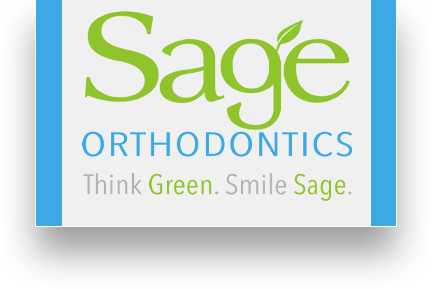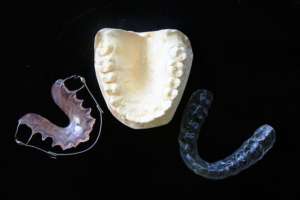Orthodontist in Portage, MI
 While undergoing orthodontic treatment, careful consideration should be taken when eating. It is possible to damage your braces from certain types of foods leading to a potentially painful and expensive experience. We’ve put together this short guide to help you decide which foods to eat and which ones to avoid.
While undergoing orthodontic treatment, careful consideration should be taken when eating. It is possible to damage your braces from certain types of foods leading to a potentially painful and expensive experience. We’ve put together this short guide to help you decide which foods to eat and which ones to avoid.
Don’t Eat These Foods
Sticky, chewy, and gummy candies are the enemy of braces. Avoid any candy or food that could become stuck in your braces. This includes taffy and chewing gum. Stay away from popcorn, as the kernels can become lodged between your brackets. Hard, crunchy foods should also be avoided. This includes foods such as nuts.
Use Caution When Eating These
You don’t have to completely give up your favorite foods with braces, just use caution. For example, corn should be removed off the cob before eating. If you are a chicken wings or ribs lover, be sure the bones have been removed before digging in to eat. Don’t let your braces become an excuse for avoiding fruits. Never bite directly into apples and pears, but slice them into smaller pieces.
Add These to Your Diet
Most meats and grains are safe for braces, if you eat bite-sized pieces. Additionally, soft fruits such as bananas and peaches can be added to your diet. Soft, easy to chew foods are going to be your safest options. This includes meals such as mashed potatoes, soups and yogurts.
Eating with braces can be a challenge, but our team is here to help you determine the best food choices while undergoing orthodontic treatment. You should still eat a balanced diet filled with fruits and vegetables. Follow our team’s directions to ensure your braces achieve their desired results. What food do you think you will treat yourself to after your treatment is completed?
To schedule your orthodontic visit, please contact our team.


 An injury to your mouth can be a painful, expensive experience. For athletes, mouth and tooth injuries pose a very real risk. Mouthguards are an excellent tool for protecting your mouth from injury and harm. Our team can help you find a solution that protects your teeth.
An injury to your mouth can be a painful, expensive experience. For athletes, mouth and tooth injuries pose a very real risk. Mouthguards are an excellent tool for protecting your mouth from injury and harm. Our team can help you find a solution that protects your teeth. We understand how easy it can be to forget about your retainer. Once you get used to having one, it can become second nature to regularly care for it. For those who are new to retainers, however, it can be tricky to remember to take care of your new appliance. We’ve assembled a list of five tips to help you get started in the right direction.
We understand how easy it can be to forget about your retainer. Once you get used to having one, it can become second nature to regularly care for it. For those who are new to retainers, however, it can be tricky to remember to take care of your new appliance. We’ve assembled a list of five tips to help you get started in the right direction. An injury to your mouth can be a painful, expensive experience. For athletes, mouth and tooth injuries pose a very real risk. Mouthguards are an excellent tool for protecting your mouth from injury and harm. Our team can help you find a solution that protects your teeth.
An injury to your mouth can be a painful, expensive experience. For athletes, mouth and tooth injuries pose a very real risk. Mouthguards are an excellent tool for protecting your mouth from injury and harm. Our team can help you find a solution that protects your teeth. As you have likely come to realize, children grow up quickly. Make sure you are savoring each moment you have with your child. Here are seven things we suggest doing with your child before they reach age 7.
As you have likely come to realize, children grow up quickly. Make sure you are savoring each moment you have with your child. Here are seven things we suggest doing with your child before they reach age 7. Sensitive teeth may occur for a variety of reasons. Receding gums, tooth decay, exposed tooth roots, and thinning tooth enamel can all cause teeth to become sensitive to temperature, as well as sweet and acidic flavors. However, patients who are undergoing orthodontic treatment are at increased risk of developing sensitivity. It is important to consider all the factors involved to determine what actions you should take regarding your braces and sensitive teeth.
Sensitive teeth may occur for a variety of reasons. Receding gums, tooth decay, exposed tooth roots, and thinning tooth enamel can all cause teeth to become sensitive to temperature, as well as sweet and acidic flavors. However, patients who are undergoing orthodontic treatment are at increased risk of developing sensitivity. It is important to consider all the factors involved to determine what actions you should take regarding your braces and sensitive teeth. Making sure your child’s mouth develops properly is important. Part of a growing mouth will mean your child’s baby teeth will come out. For many kids, baby teeth loosen and fall out on their own, but every child is different. When you bring your child in for an orthodontic evaluation, we take into consideration your child’s baby teeth. Here are some things to remember about your child’s teeth.
Making sure your child’s mouth develops properly is important. Part of a growing mouth will mean your child’s baby teeth will come out. For many kids, baby teeth loosen and fall out on their own, but every child is different. When you bring your child in for an orthodontic evaluation, we take into consideration your child’s baby teeth. Here are some things to remember about your child’s teeth. The desire for straighter teeth goes back thousands of years. We’ve come a long way in improving our smiles. Braces have evolved over time to become more comfortable and efficient. Here are six things you probably never knew about braces.
The desire for straighter teeth goes back thousands of years. We’ve come a long way in improving our smiles. Braces have evolved over time to become more comfortable and efficient. Here are six things you probably never knew about braces. Halitosis, commonly known as bad breath, is commonly associated with certain foods. Garlic, onion, and cabbage can all cause a foul odor and taste for several hours after you’ve eaten them. This type of temporary halitosis is easily solved by avoiding the foods that cause it. However, in some cases bad breath is a chronic problem that simply changing your diet won’t solve.
Halitosis, commonly known as bad breath, is commonly associated with certain foods. Garlic, onion, and cabbage can all cause a foul odor and taste for several hours after you’ve eaten them. This type of temporary halitosis is easily solved by avoiding the foods that cause it. However, in some cases bad breath is a chronic problem that simply changing your diet won’t solve.